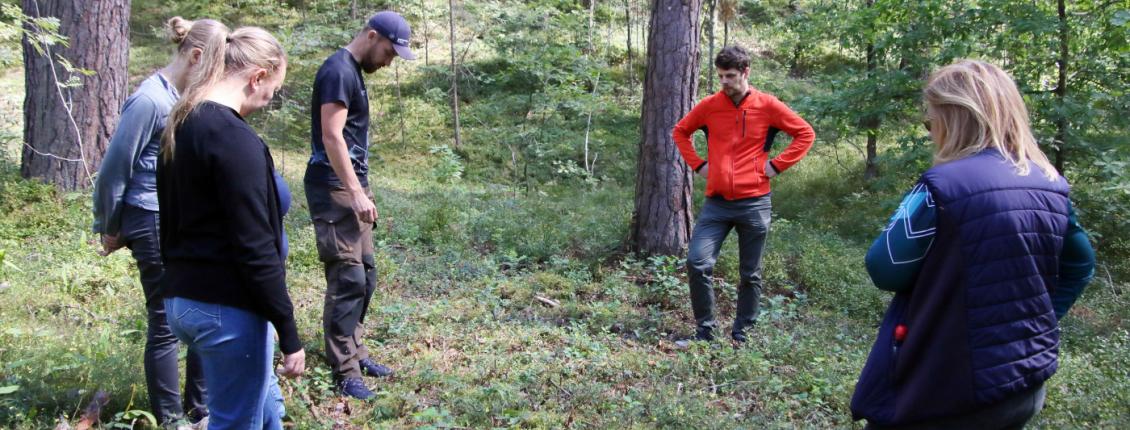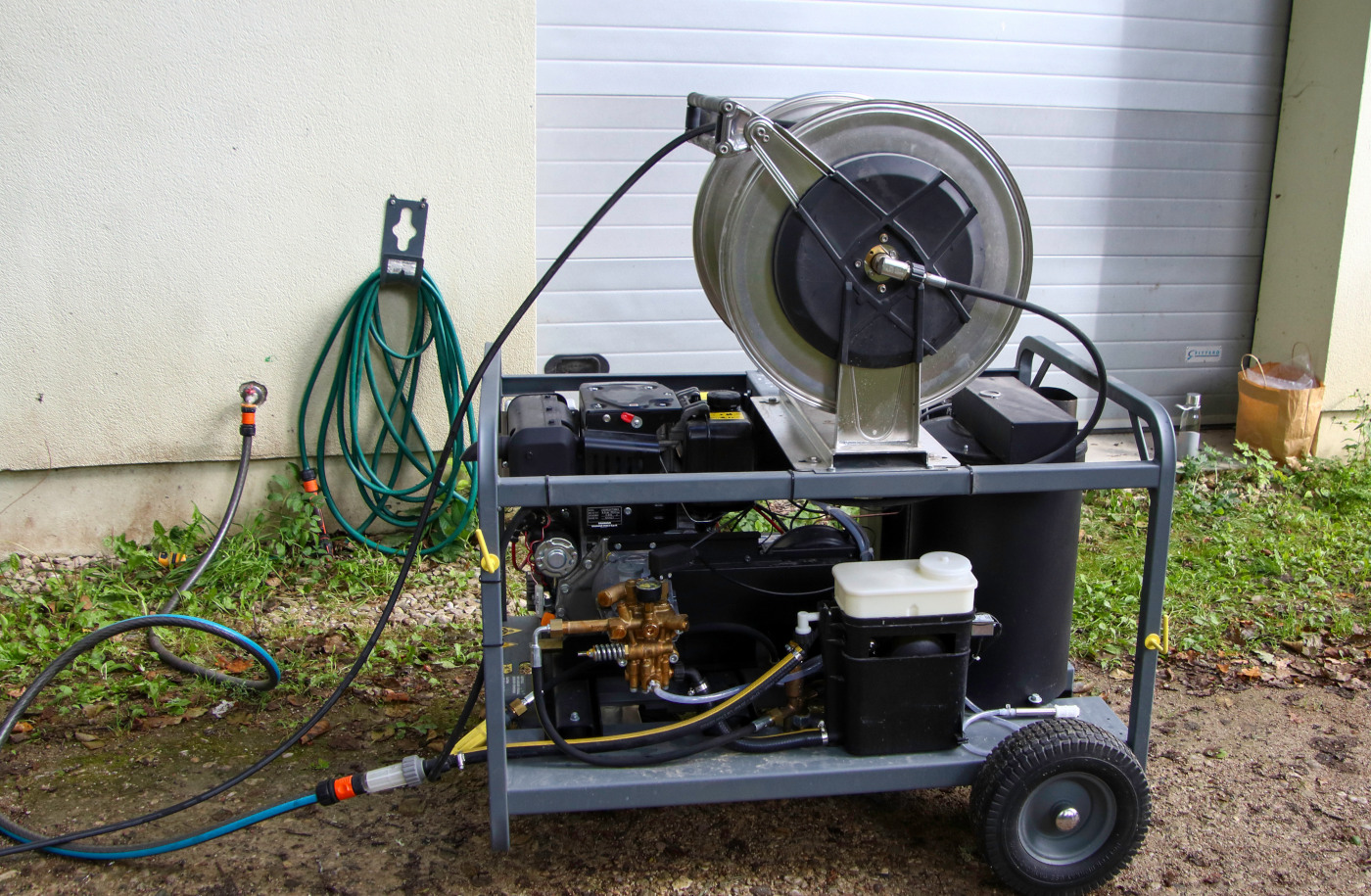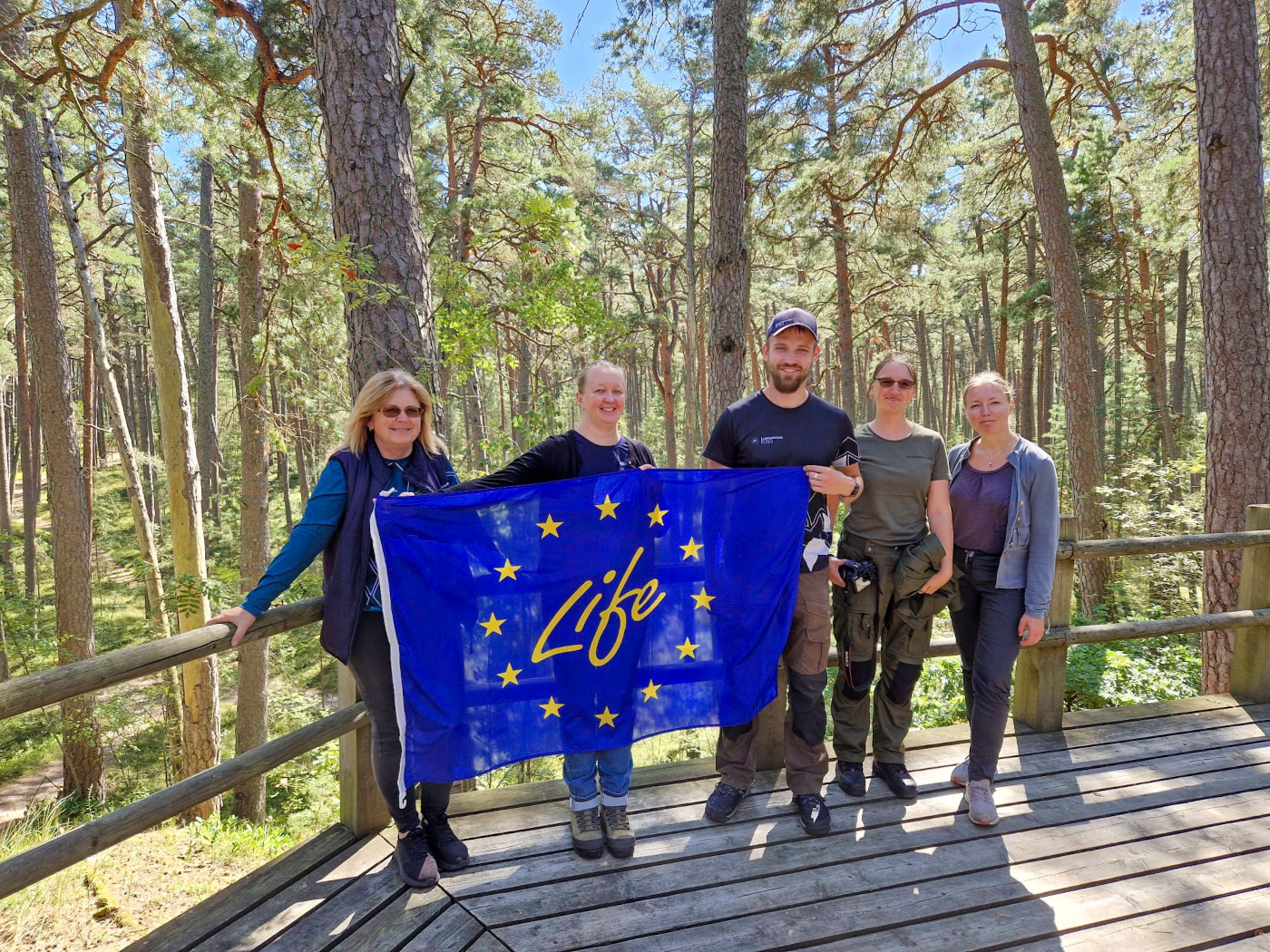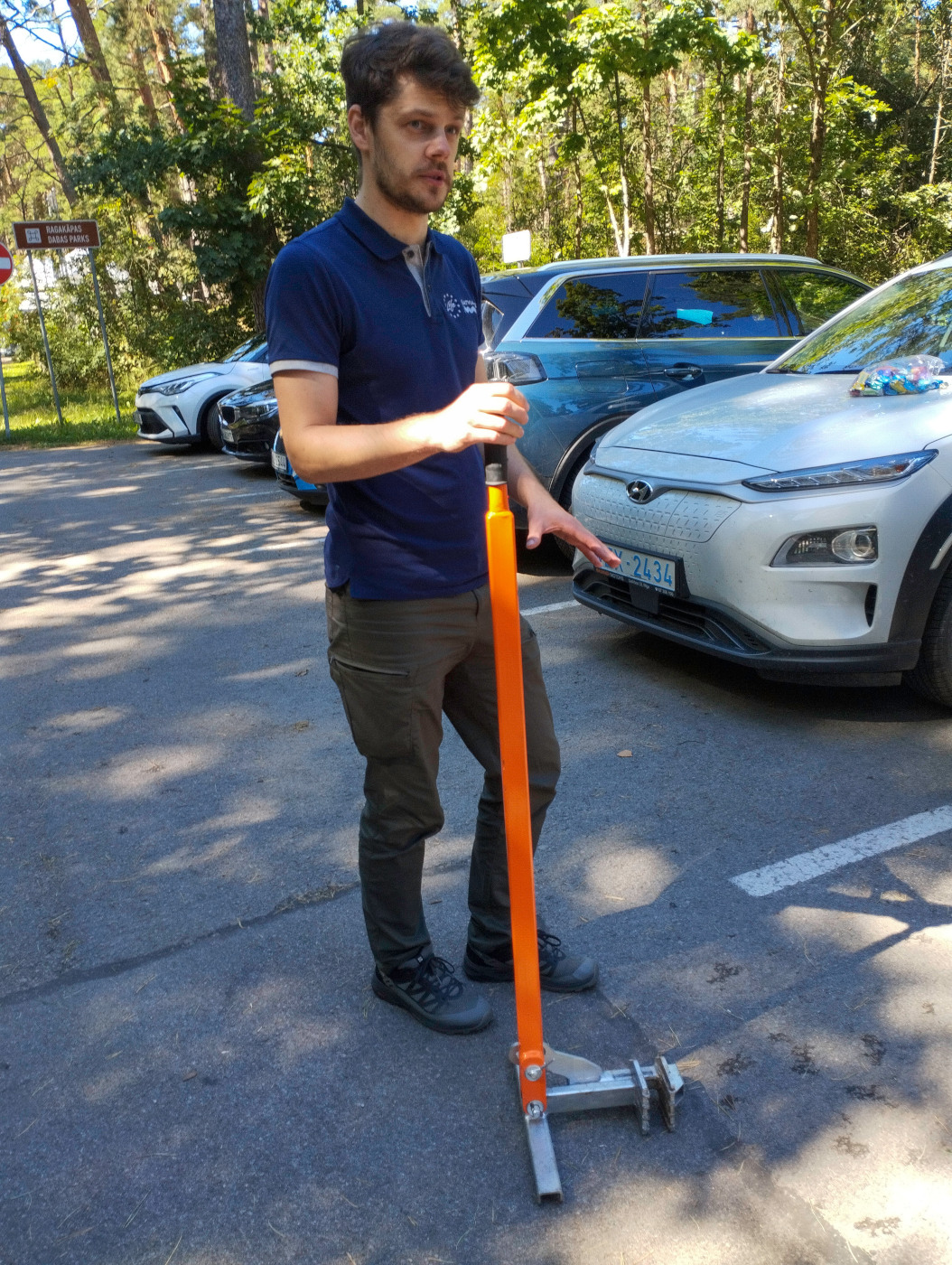September 11, 2024
Eike Tammekänd, Merili Lillemets, Keskkonnaamet
Alien species don’t know national borders: a peek at how Latvians control alien species
On 12–13 August, we learned about the alien species control activities carried out under the Latvian LIFE project LatViaNature. The control activities were introduced to us by Jēkabs Dzenis, Jānis Saulītis and Aiva Bojāre from the Latvian environmental agency, with whom we visited the Ķemeri and Ragakāpa nature parks and the Vecdaugava nature reserve.
When driving to Riga, you will surely have noticed an abundance of Canadian goldenrod growing along the roads of Latvia. It is also one of the plants that the Latvian environmental agency is controlling in the course of the project, using various control methods, such as mowing at different frequencies, cutting and sowing of competing plants, along with ploughing, mulching and weeding.
Canadian goldenrod is also invading Estonia and we, too, are testing a couple of different control methods. Thus it was very useful to exchange experiences.
In addition, Latvians are controlling Himalayan balsam, also by letting horses graze on the areas, along with other control methods (steaming, cutting, sowing competing plants, weeding and mulching). They treat the stumps of the fast-spreading box elder with herbicide, as well as peel the tree trunk, weed young plants, cut, plough, mow and mulch.
Latvians also control garden shadblow, including by uprooting it with the hand tool shown in the picture, plucking it out with a tractor, treating the stumps with herbicide, and mowing. In Estonia, garden shadblow and box elder are not yet controlled, but both species show signs of invasiveness also here.
For steaming plants, Latvians use the hot steam machine by Kärcher, which is similar to the HeatWeed device being tested in Estonia.
The control of invasive alien species harmful to nature and humans is laborious and expensive, which is why it is very important to learn from the experience of other countries and prevent new alien species from entering Estonian nature. By prevention and responding quickly, we do a favour to our nature and ourselves, as well as save money.



